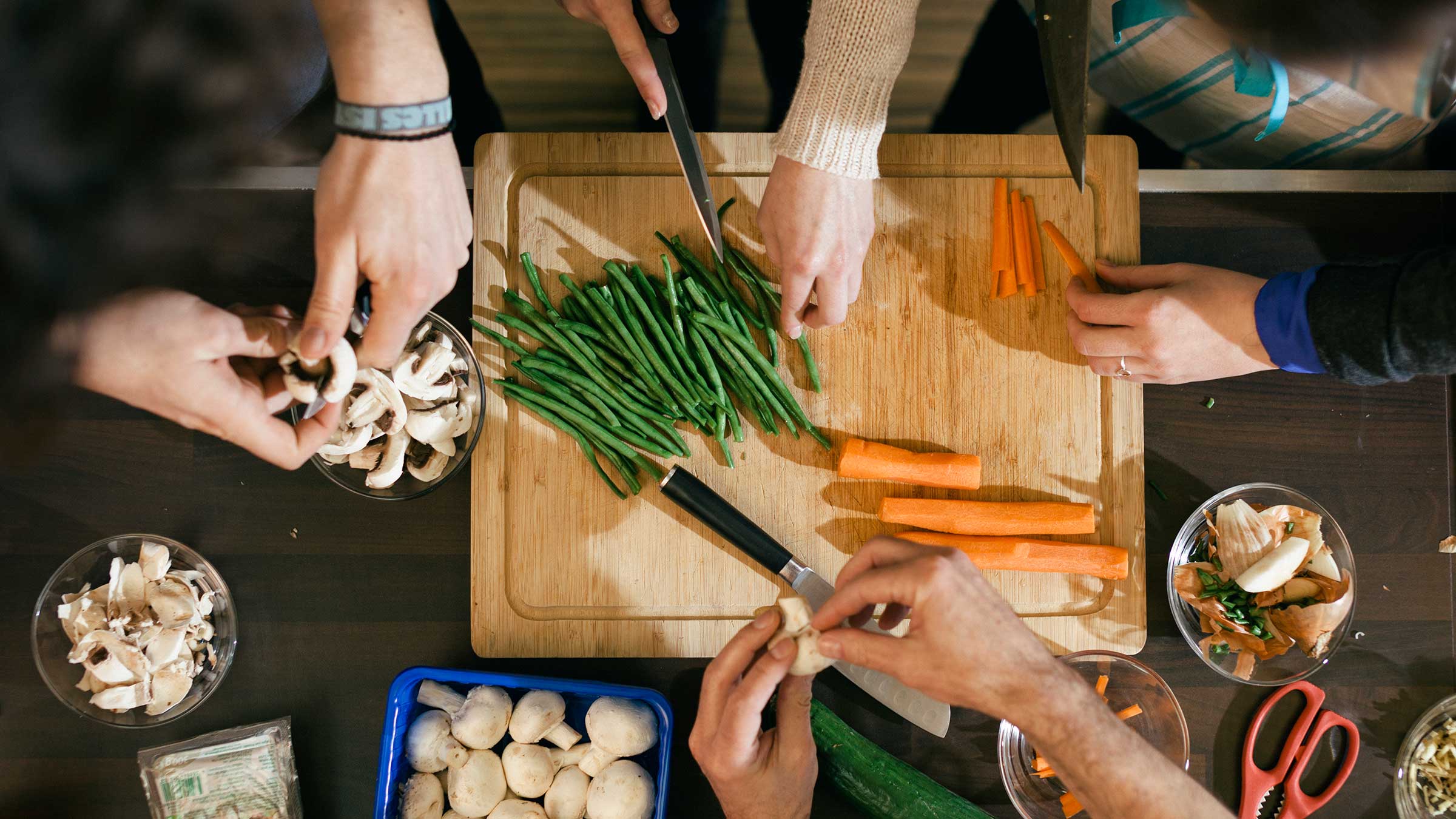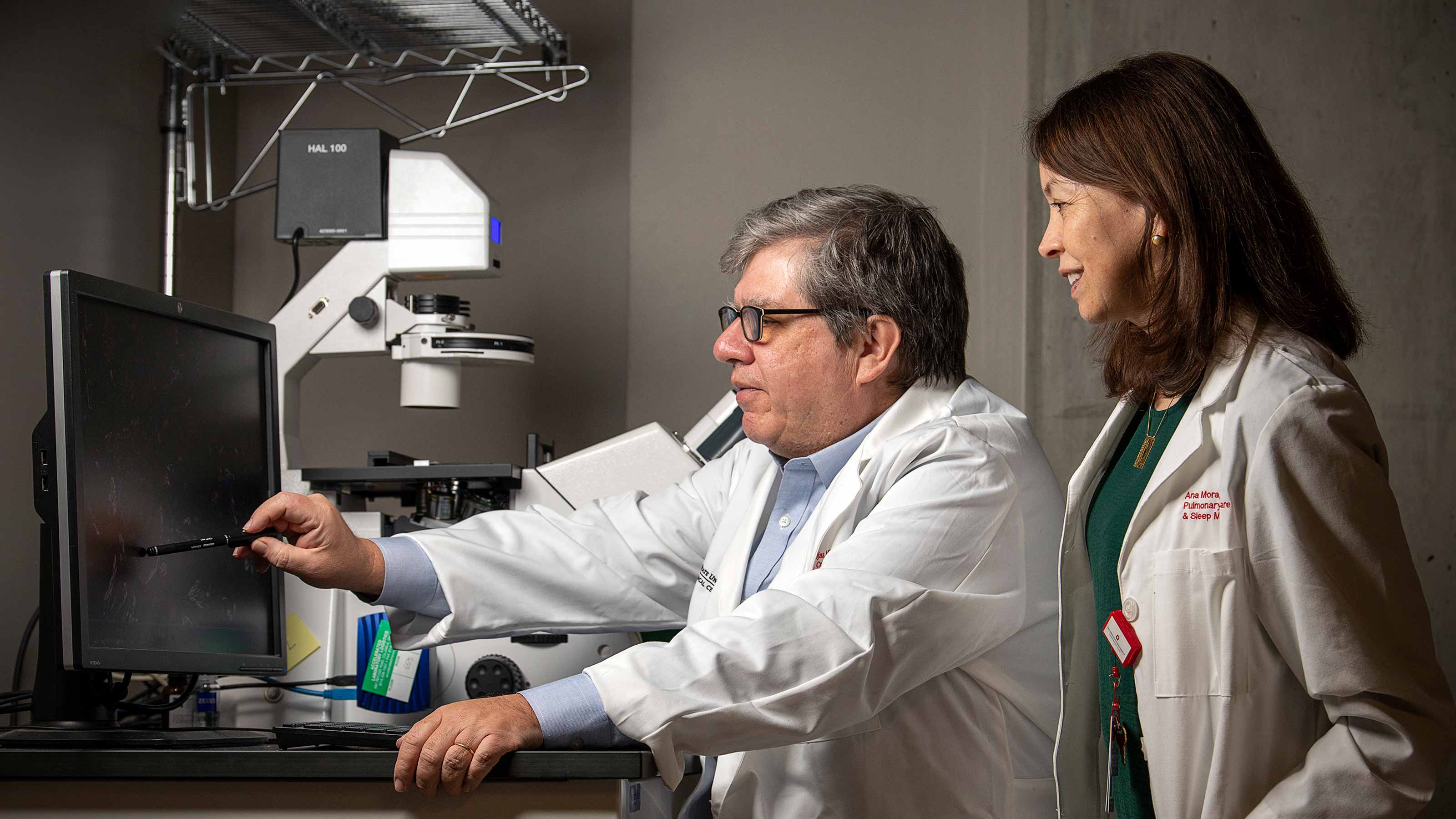Teaching cooking skills to people with diabetes improves their quality of life and diabetes self-management

Diabetes remains one of the most common chronic illnesses in the United States, affecting more than 34 million adults. It’s vitally important to teach people living with diabetes how to manage the disease properly, including maintaining healthy A1C hemoglobin levels. But food insecurity and a lack of access to nutritious foods can make diabetes management and A1C control more difficult.
In 2018, 11.5% of households in the United States experienced some food insecurity throughout the year. Several studies have identified a greater prevalence of food insecurity among those with type 2 diabetes, compared with the national average.
A1C is an important predictor of who will have poor long-term outcomes in diabetes, like heart disease, stroke, kidney disease, eye disease and nerve disease. Keeping the A1C less than 7% for most individuals living with diabetes is key to reducing the risk, said Dr. Joshua J. Joseph, an endocrinologist and assistant professor in the Division of Endocrinology, Diabetes and Metabolism in the Department of Internal Medicine at The Ohio State University College of Medicine.
Dr. Joseph also is the senior author of a new study that published online in the Journal of the Academy of Nutrition and Dietetics. The study tested whether a cooking intervention that provided food — along with diabetes self-management education to encourage healthy eating and physical activity — would improve A1C hemoglobin levels and diabetes management.
Researchers at The Ohio State University Wexner Medical Center and College of Medicine partnered with the nonprofit Local Matters to offer the “Cooking Matters for Diabetes” intervention to 48 adults with type 1 or type 2 diabetes. The six-week classes included weekly food supplies for participants.
“This study showed that Cooking Matters for Diabetes may be an effective method of improving diet-related self-care and health-related quality of life, especially among those living with food insecurity,” said co-author Amaris Williams, a postdoctoral scholar in the Division of Endocrinology, Diabetes and Metabolism at Ohio State.
Advancements have made insulin safer, more effective in treating diabetes
Education focused on cooking helps patients self-manage their diabetes
Cooking Matters for Diabetes was adapted from Cooking Matters and the American Diabetes Association’s diabetes self-management education and support program. The Columbus-area Local Matters, which works to create healthy communities through food education, access and advocacy, partnered in the design and delivery of the intervention, including the culinary instructor, cooking equipment, food provisions and volunteers.
The Ohio State Wexner Medical Center’s Diabetes Education team provided the community facility for the program and the certified diabetes care and education specialists.
The weekly classes included cooking demonstrations along with lessons on diabetes and treatment options; healthy eating; physical activity; medication usage; monitoring and using patient-generated health data; preventing, detecting and treating acute complications; healthy coping with psychosocial issues and concerns and problem solving. In addition, participants embarked on an interactive visit to a grocery store during one class.
The cooking portion provided education on food safety, knife techniques, nutrition facts and ingredients label reading, meal planning, budgeting and shopping. Each class, except the grocery store tour, involved participants cooking a meal in small groups. All participants then sat and shared the meal together, with the goal of building a sense of community.
“We found that study participants ate more vegetables and fewer carbohydrates. We saw improvements, including significant changes in diabetes self-management activities and numerical lowering of A1C among food-insecure study participants,” said study co-investigator Jennifer C. Shrodes, a registered and licensed dietitian and a certified diabetes care and education specialist at Ohio State’s Division of Endocrinology, Diabetes and Metabolism.
Can COVID-19 trigger diabetes?
A key goal was improving “food literacy” among study participants, said Michelle Moskowitz Brown, executive director of Local Matters.
“Teaching cooking skills has been shown to help reduce the burden of food insecurity. But broader ‘food literacy’ skills required to get food on the table, such as meal planning, shopping, budgeting, food safety and nutrition, are also of critical importance,” Moskowitz Brown said.
Participants filled out surveys about their diabetes self-care activities along with medical outcomes health surveys, diet history and a food security questionnaire. In addition, the participants’ A1C was measured at baseline, post intervention and follow-up at three months.
“Many outcomes improved more substantially among individuals with food insecurity, compared to those without,” Dr. Joseph said. “But during the post-intervention follow-up period, the food-insecure group experienced greater regression, emphasizing the importance of sustained follow-up in populations made vulnerable related to one or more social determinants of health.”
The research team included collaborators from the College of Medicine’s Center for Biostatistics and Department of Biomedical Informatics, as well as Ohio State’s Medical Dietetics program; College of Nursing; School of Health and Rehabilitation Sciences and John Glenn College of Public Affairs and the Wake Forest School of Medicine.

Living with diabetes?
The nationally recognized diabetes and endocrinology experts at Ohio State are here to help.
Learn More




